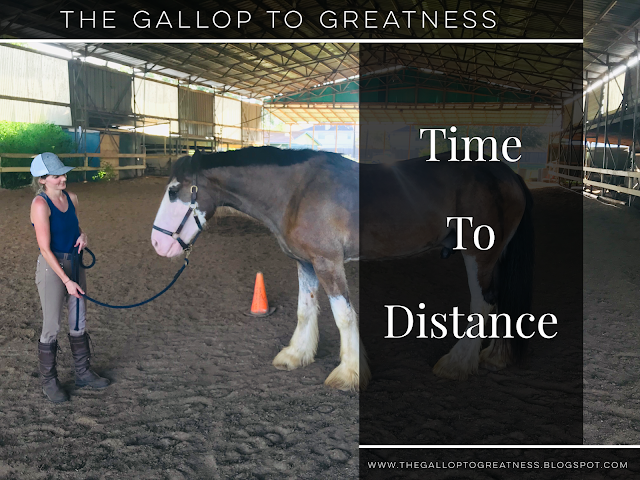What I've Learned From Fussy/Spooky Horses
Rule #1
Never make a fuss.
This was were I first went wrong as a newbie. If my horse spooked I stopped everything and
tried to figure out what it was. Granted sometimes you have to. But unless your horse bolts or runs off a bit you don't need to stop. And if you can't seem to find out what's spooking them? Chances are you don't need to.
tried to figure out what it was. Granted sometimes you have to. But unless your horse bolts or runs off a bit you don't need to stop. And if you can't seem to find out what's spooking them? Chances are you don't need to.
One of my trainers used to have me keep going and circle back through until the horse was calm enough to not have any major issues.
A horse showing concern is fine. But losing his mind and not putting his trust in you and looking to you for reassurance is dangerous.
#2 Persist in normalcy.
This I learned from my last two projects.
One was half blind and thus had a legitimate reason for being spooky.
The other....
We swore she saw imaginary monsters. And she was so particular that if you didn't handle her just so she got very fussy! Talk about the mare nostril flare..
She was known her being "pissy" to say the least.
Her owner ate dirt quite often..
She was known her being "pissy" to say the least.
Her owner ate dirt quite often..
But despite whatever reasons your horse may or may not have for being spooky and or fussy do not let it affect your heart!
Seriously.
No matter what, don't get mad, or annoyed, or even disappointed.
Remain neutral.
You have to control yourself before you can control your horse.
Your emotional reaction will only validate their actions.
Just keep going along. Almost pretending nothing happened. And don't over prepare when you come back around to that spot.
The idea is that if you, their leader, does not see it as a threat and treats it as normal then they will follow suit.
Which brings us to
#3 Find ways to keep their attention on you.
This is important and the best way to prepare for coming back to a spooky spot.
You have to get and keep them focused on you. There are many different ways to do this and each horse will respond better to certain things than others.
For some just taking up contact is enough. For others circles and serpentines help. And for others stretching helps better. And yet others respond best to lateral work.
Also mixing up which one you use depending on the occasion as needed is useful so they don't anticipate anything.
Finding what works for you and your horse will take some trial and error.
Once they are relaxed they can fully focus on you.







I really enjoyed this-!! New system,probably new Google hassles for me..but buzzing in-!!
ReplyDeleteSusie
Aww thank you! I will be adding more articles like this :) Next one is about Respect ;)
Delete